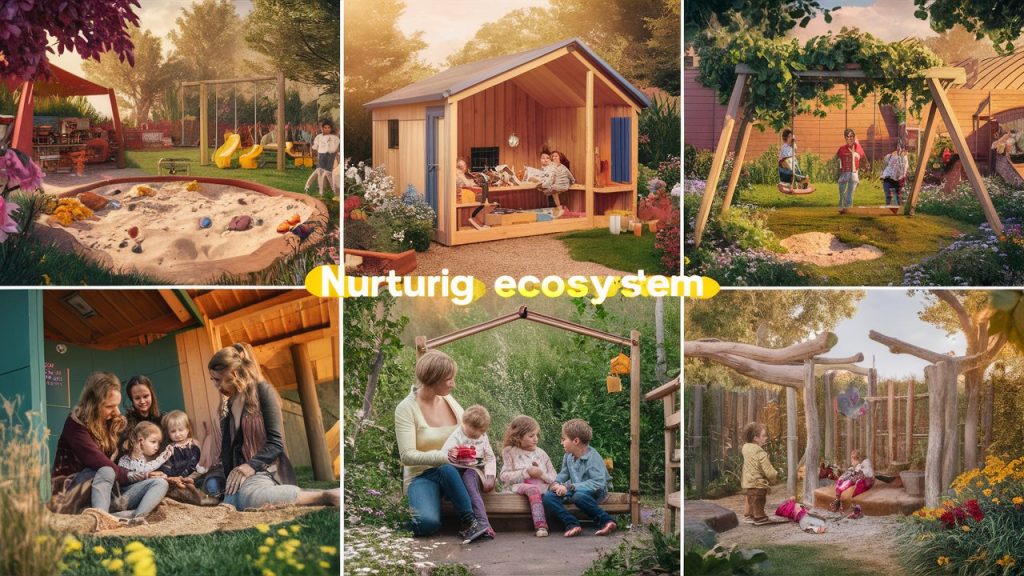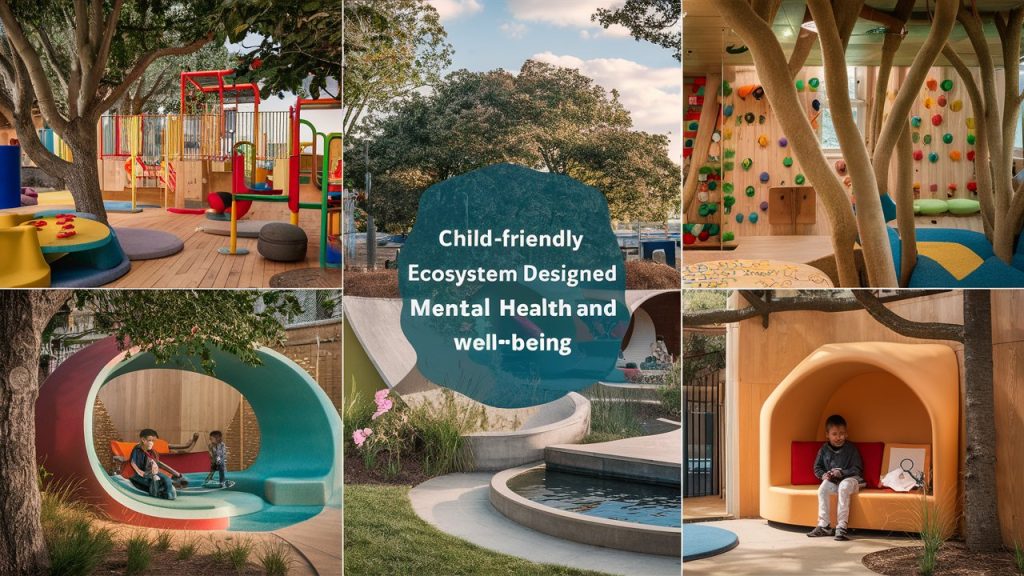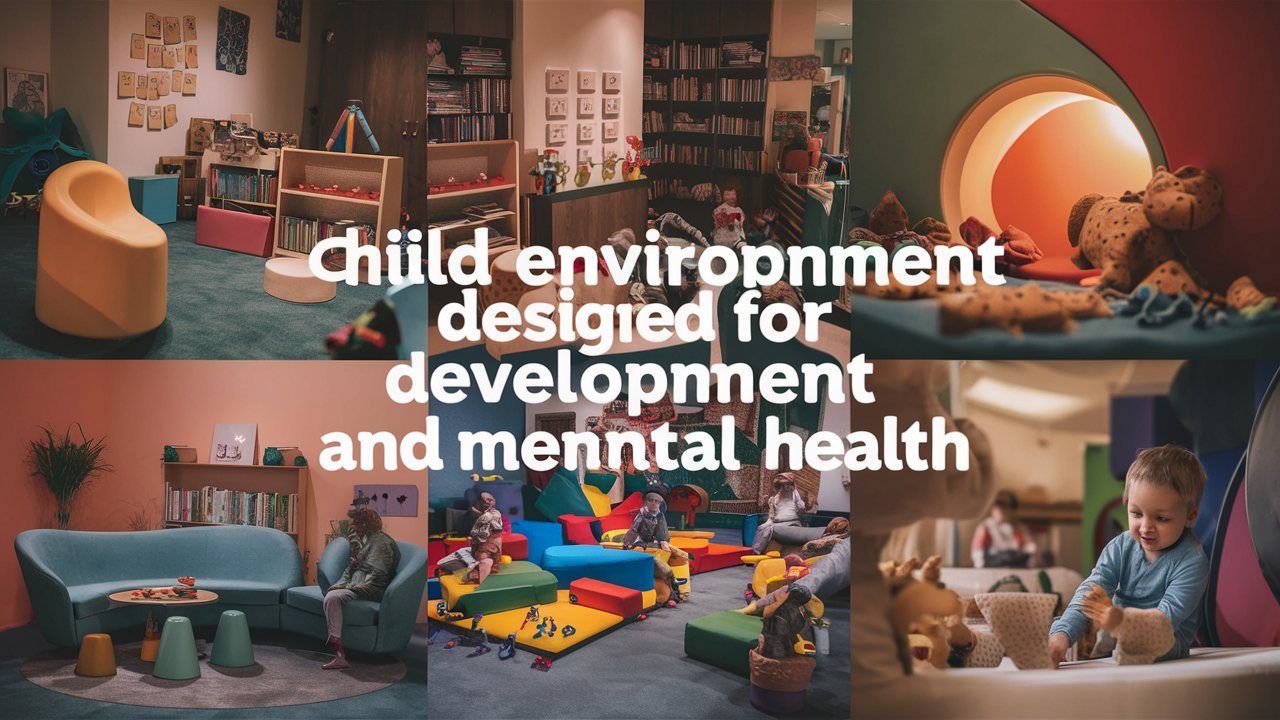Table of Contents
Creating a nurturing environment for children’s mental health is essential for their development. The ecosystem for child development mental health encompasses various factors contributing to a child’s emotional, social, and psychological well-being. Understanding and optimizing this ecosystem can help children grow into healthy, happy, and thriving individuals. This article will explore the key components of this ecosystem and provide insights into fostering a supportive environment for children’s mental health.
Understanding the Ecosystem for Child Development Mental Health

What Is the Ecosystem for Child Development Mental Health?
The ecosystem for child development mental health refers to the network of influences that affect a child’s emotional and mental well-being. This ecosystem includes:
- Family Environment: The role of family dynamics and relationships.
- Educational Settings: The impact of schools and learning environments.
- Social Interactions: The influence of peers and Community.
- Health Services: Access to mental health support and resources.
Key Components of a Supportive Ecosystem for child Development Mental Health
1. Positive Family Environment
A loving and stable family environment is crucial for mental health. It includes:
- Parental Support: Encouraging and understanding parents create a safe space for children.
- Healthy Communication: Open dialogue helps children express their feelings and resolve conflicts.
- Consistent Routines: Regular routines provide a sense of security and predictability.
2. Nurturing Educational Settings
Schools play a significant role in the ecosystem for child development and mental health. Important aspects include:
- Supportive Teachers: Attentive and supportive educators can positively impact mental health.
- Safe Learning Environment: A safe and inclusive school environment helps children feel valued and secure.
- Programs and Resources: Access to counseling services and mental health programs within schools.
3. Healthy Social Interactions
Children’s interactions with peers and their Community contribute to their mental health. Key factors include:
- Positive Friendships: Healthy peer relationships provide emotional support and social skills.
- Community Engagement: Participation in community activities fosters a sense of belonging and purpose.
- Social Skills Development: Learning to navigate social situations builds confidence and resilience.
4. Accessible Health Services
Access to mental health resources is vital for early intervention and support. This includes:
- Mental Health Professionals: Access to psychologists, counselors, and therapists for support and treatment.
- Educational Resources: Availability of materials and programs that educate children and families about mental health.
- Crisis Intervention: Resources and support systems for immediate mental health crises.
Building a Positive Ecosystem for Child Development Mental Health
Creating a Supportive Family Environment
1. Foster Emotional Connections
Building strong emotional bonds within the family helps children feel loved and supported. This can be achieved by:
- Quality Time: Spending time together strengthens relationships and creates a sense of security.
- Active Listening: Listening to children’s thoughts and feelings validates their experiences and emotions.
- Encouragement and Praise: Positive reinforcement boosts self-esteem and confidence.
2. Implement Healthy Routines
Consistent routines provide stability and help children feel secure. Establish:
- Regular Sleep Patterns: Adequate and consistent sleep supports overall mental and physical health.
- Structured Daily Activities: Balanced schedules with time for school, play, and relaxation.
- Family Traditions: Family traditions create a sense of belonging and continuity.
Enhancing Educational Environments for ecosystem for child development mental health
1. Promote Positive School Experiences
Schools should prioritize creating an environment that supports mental health by:
- Encouraging Inclusivity: Ensuring every child feels included and valued in the classroom.
- Providing Support Services: Offering counseling and mental health resources to students.
- Building Resilience: Implementing programs that teach coping skills and resilience.
2. Support Teacher Development
Educators play a crucial role in the ecosystem for child development and mental health. Supporting teachers includes:
- Professional Training: Providing training on mental health awareness and support strategies.
- Resources and Tools: Offering tools and resources to help teachers manage classroom dynamics and support students.
- Creating a Supportive Culture: Fostering a positive school culture that values mental health.
Fostering Healthy Social Interactions
1. Encourage Positive Friendships
Help children develop healthy social skills by:
- Facilitating Social Activities: Encouraging participation in group activities and extracurriculars.
- Teaching Social Skills: Guiding children to form and maintain positive relationships.
- Modeling Positive Behavior: Demonstrating healthy social interactions and conflict resolution.
2. Engage with the Community
Community involvement supports mental health by:
- Participating in Community Events: Engaging in local events helps children feel connected and valued.
- Volunteering: Encouraging volunteer work fosters empathy and a sense of purpose.
- Building a Support Network: Creating connections with other families and community members.

Ensuring Access to Health Services
1. Promote Mental Health Awareness
Educate families and children about the importance of mental health by:
- Providing Resources: Sharing information on mental health topics and resources available.
- Hosting Workshops: Organizing workshops on mental health and well-being.
- Encouraging Open Dialogue: Promoting conversations about mental health within families and schools.
2. Facilitate Access to Professional Support
Ensure that families can access necessary mental health services by:
- Offering Affordable Services: Providing access to affordable and accessible mental health care.
- Building Partnerships: Collaborating with local health services to enhance support networks.
- Emergency Support: Ensuring availability of crisis intervention services for immediate assistance.
Creating an effective ecosystem for child development and mental health involves:
- Nurturing a supportive family environment.
- Enhancing educational settings.
- Fostering healthy social interactions.
- Ensuring access to health services.
Also Read: Michael Gifford Vivent Health: Championing Hope and Wellness
Focusing on these key areas can help children thrive emotionally and mentally, setting them up for a successful and fulfilling life. Embrace these strategies to create a nurturing environment that supports every child’s mental health and well-being.




